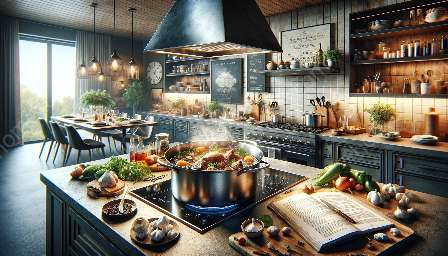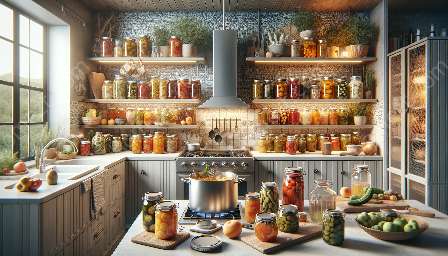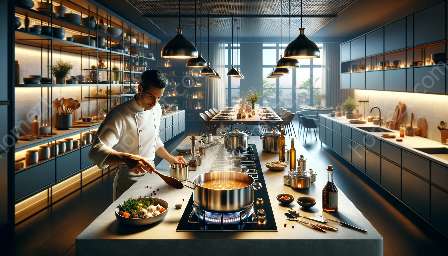Boiling is a fundamental cooking technique with a rich history and a versatile range of applications in the kitchen. Whether you're a novice cook or a seasoned chef, mastering the art of boiling can elevate your culinary skills and transform the way you prepare and enjoy meals.
Understanding the Science of Boiling
At its core, boiling involves the rapid transformation of a liquid into a vapor state due to the application of heat. This process occurs when the liquid reaches its boiling point, resulting in the formation of bubbles and the release of steam. The science of boiling is essential for achieving precise cooking results and unlocking the flavors and textures of various ingredients.
Enhancing Flavors and Nutrients
When ingredients are submerged in boiling water or other liquids, the intense heat helps extract and enhance their natural flavors. Additionally, the process of boiling, when executed correctly, can preserve essential nutrients, making it an ideal cooking method for health-conscious individuals.
Boiling Techniques: Bringing Out the Best in Ingredients
From blanching vegetables to cooking pasta and preparing stocks, boiling techniques can be tailored to suit a wide array of ingredients. By understanding the nuances of boiling, you can achieve optimal results while retaining the integrity of the ingredients.
Blanching and Parboiling
Blanching and parboiling are quick boiling methods that are particularly effective for vegetables. These techniques help retain the vibrant colors, textures, and nutrients of the vegetables, making them suitable for various culinary applications.
Poaching and Simmering
Poaching and simmering involve gentle boiling, which imparts subtle flavors and tenderizes proteins such as fish, poultry, and eggs. By maintaining a lower temperature during the boiling process, you can achieve precisely cooked and delicately flavored dishes.
Boiling Stocks and Broths
Boiling is essential for extracting aromatic flavors and essential nutrients when preparing stocks and broths. The slow and steady simmering of bones, vegetables, and aromatics results in rich, flavorful bases for soups, stews, and sauces.
Equipment and Tips for Successful Boiling
Choosing the right cookware, such as pots and pans with thick bottoms and lids, is crucial for even heat distribution and efficient boiling. Additionally, incorporating salt and other seasonings into the boiling liquid can enhance the overall flavor of the ingredients.
Boiling: Transforming Your Kitchen and Dining Experiences
By mastering the art of boiling, you can expand your culinary repertoire and create a diverse range of dishes with depth and complexity. Whether you're preparing comforting soups, perfectly al dente pasta, or flavorful stocks, boiling can unlock the potential of your ingredients and elevate your kitchen and dining experiences.


























